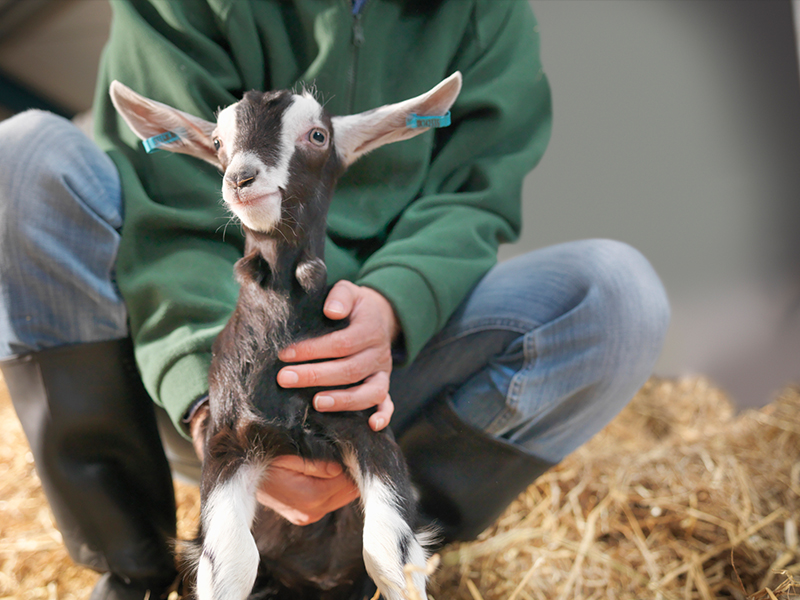Animal welfare has become a pressing issue in today’s society, with a growing number of people becoming aware of the impact of human actions on animals. From factory farming to animal testing, the mistreatment of animals for various purposes has sparked outrage and calls for change. This is where animal welfare campaigns play a crucial role. These campaigns not only educate the public about the suffering of animals but also empower individuals and communities to take action and create a more compassionate world for all living beings.
In this article, we will explore the power of animal welfare campaigns and how they play a significant role in raising awareness, educating the public, and advocating for the protection of animals. Through effective communication strategies and by engaging with diverse audiences, these campaigns have the potential to make a real difference in the lives of animals.
Understanding Animal Welfare Awareness Campaigns

Before delving into the impact of animal welfare campaigns, it is essential to understand what these campaigns entail. Animal welfare campaigns aim to promote the well-being and ethical treatment of animals by raising awareness and advocating for their rights. They can take various forms, such as social media campaigns, protests, petitions, and educational programs. The ultimate goal of these campaigns is to bring about positive changes in policies, laws, and societal attitudes towards animals.
Animal welfare campaigns target a wide range of issues, including farm animal welfare, companion animal welfare, wildlife protection, and animal testing. These campaigns rely heavily on the support and involvement of the public to achieve their goals. By educating and empowering individuals, these campaigns work towards creating a more compassionate and ethical society for animals.
Educating the Public through Animal Welfare Campaigns
One of the primary objectives of animal welfare campaigns is to educate the public about animal welfare concerns. The lack of awareness and understanding about animal welfare issues contributes to the perpetuation of unethical practices and mistreatment of animals. By providing information and raising awareness, these campaigns aim to challenge misconceptions and promote empathy towards animals.
The Role of Social Media and Digital Platforms
In today’s digital age, social media has become a powerful tool for spreading messages and raising awareness about various issues. Animal welfare campaigns have leveraged the potential of social media to reach a wider audience and disseminate information about animal rights. A notable example is the viral campaign, Share the Care, which aims to raise awareness about the plight of farm animals and encourage people to adopt a more ethical and sustainable diet.
Similarly, the End the Cage Age campaign, launched by Eurogroup for Animals, utilized social media to expose the cruelty of keeping animals in cages for farming purposes. The campaign gained massive traction on platforms like Twitter and Facebook, sparking conversations and calling for an end to this inhumane practice.
Social media also allows for real-time updates and interactions with the public, making it easier for animal welfare organizations to engage with their audience and address any concerns or questions. It also enables individuals to share their support for animal welfare causes and encourage others to do the same, creating a ripple effect of awareness and action.
Traditional Media and Outreach
While social media has revolutionized the way animal welfare campaigns are conducted, traditional media outlets still play a crucial role in educating the public. Newspapers, magazines, and television continue to be significant sources of information for many people, and animal welfare organizations have recognized the need to collaborate with mainstream media to reach a broader audience.
Through news articles, opinion pieces, and documentaries, traditional media outlets have the power to expose animal cruelty and advocate for ethical practices. These platforms also provide a space for diverse perspectives and debates, allowing for a deeper understanding of animal welfare issues.
Empowering Individuals through Animal Welfare Campaigns
Animal welfare campaigns not only educate the public but also empower individuals to take action and make a difference. By providing information and resources, these campaigns encourage people to become active participants in creating a more compassionate world for animals.
Volunteer and Advocacy Opportunities
Animal welfare organizations often offer volunteer and advocacy opportunities for individuals to get involved and contribute to their cause. This can include activities such as volunteering at animal shelters, participating in protests or awareness events, or advocating for animal-friendly policies and laws.
Volunteering not only benefits the organization but also provides individuals with a hands-on experience of working towards animal welfare and making a direct impact. It also allows individuals to connect with like-minded people and build a community of change-makers.
Advocacy opportunities, on the other hand, provide individuals with a platform to voice their concerns and demand action from policymakers. By engaging with local and national governments, animal welfare campaigns aim to bring about legislative changes that protect the rights and well-being of animals.
Education and Training Programs
Another way animal welfare campaigns empower individuals is through education and training programs. These programs provide a deeper understanding of animal welfare issues, ethical practices, and ways to make a positive impact. They can range from online courses and workshops to seminars and conferences.
By equipping individuals with knowledge and skills, these programs not only create a sense of empowerment but also inspire and motivate people to take action. They also serve as a means of building a network of informed and passionate individuals who can work together towards a common goal.
The Impact of Animal Welfare Campaigns

The power of animal welfare campaigns lies in their ability to educate and empower individuals, which ultimately leads to tangible changes in society. These campaigns have the potential to create a ripple effect, influencing people’s attitudes and behaviors towards animals. Let us explore some of the significant impacts of animal welfare campaigns.
Legislative Changes
Through media outreach, lobbying, and advocacy efforts, animal welfare campaigns have the power to bring about legislative changes. For instance, the End the Cage Age campaign, which we mentioned earlier, was instrumental in pushing the European Commission to propose a ban on caged farming by 2027. This decision will affect millions of animals and is a significant step towards ending cruel and inhumane practices.
Similarly, campaigns such as Ban Fur Farming and End Live Exports have also resulted in changes in legislation, banning these practices in several countries. These victories are a testament to the power of animal welfare campaigns in influencing policymakers and bringing about positive changes for animals.
Corporate Changes
Another significant impact of animal welfare campaigns is their influence on corporate practices. As consumers become more aware and conscious of animal welfare issues, they are demanding ethical and sustainable products from companies. Animal welfare campaigns, through their messaging and awareness efforts, have played a crucial role in shaping consumer attitudes and influencing purchasing decisions.
For instance, the popular campaign, Be Cruelty-Free, which advocates for an end to cosmetic testing on animals, has resulted in several major beauty brands committing to using only cruelty-free ingredients. Similarly, campaigns targeting fast food chains and clothing brands have influenced their practices, leading to the adoption of more ethical and sustainable methods of sourcing and production.
Cultural Shift Towards Compassion
One of the most significant impacts of animal welfare campaigns is the gradual shift towards a more compassionate society. By raising awareness and promoting empathy towards animals, these campaigns challenge societal norms and beliefs that perpetuate animal cruelty. They encourage people to question their actions and make more ethical choices, leading to a cultural shift towards compassion for animals.
This shift is evident in the increasing demand for plant-based diets, the rise of cruelty-free and sustainable products, and the growing number of people advocating for animal rights. The impact of animal welfare campaigns may not be immediate, but their long-term effects are undeniable in shaping a more compassionate world for all living beings.
Challenges Faced by Animal Welfare Campaigns

While animal welfare campaigns have proven to be effective in creating change, they also face challenges and obstacles that can hinder their progress. Let us look at some of the common challenges faced by animal welfare campaigns.
Funding and Resources
Animal welfare organizations often struggle with limited funding and resources, making it challenging to reach a wider audience and conduct effective campaigns. Many of these organizations rely on donations and fundraising efforts, which may not always be sufficient to sustain their campaigns long-term. Limited resources can also hinder the implementation of more extensive campaigns and initiatives, limiting their impact.
Lack of Public Support
While animal welfare campaigns strive to educate and engage the public, they also face resistance and backlash from individuals who do not share the same values and beliefs. This can lead to negative publicity and discourage people from supporting the cause. The lack of public support can also make it challenging to influence policymakers and corporations, hindering the progress of the campaign.
Legislative and Corporate Resistance
As we have seen earlier, animal welfare campaigns aim to bring about changes in legislation and corporate practices. However, this can be an uphill battle as laws and regulations are often influenced by powerful industries and lobbyists. Similarly, corporations may resist changing their practices due to financial reasons or the belief that it may not affect their bottom line.
Animal welfare campaigns must navigate these challenges and find creative ways to overcome them to achieve their goals. By working together and constantly adapting to changing circumstances, these campaigns can continue to create meaningful change for animals.
Conclusion

Animal welfare awareness campaigns are essential for raising awareness, educating the public, and advocating for the protection of animals. Through various communication strategies and by engaging with diverse audiences, these campaigns have the power to educate and empower individuals, bringing about tangible changes in policies and societal attitudes towards animals.
The impact of animal welfare campaigns is evident in legislative changes, corporate practices, and the gradual shift towards a more compassionate society. However, these campaigns also face challenges such as limited resources and public resistance, which must be overcome to achieve their goals. As individuals, we can support animal welfare campaigns by educating ourselves, making ethical choices, and actively participating in their efforts to create a better world for all living beings. Let us harness the power of these campaigns to make a positive impact on the lives of animals.
wfriv.xyz
